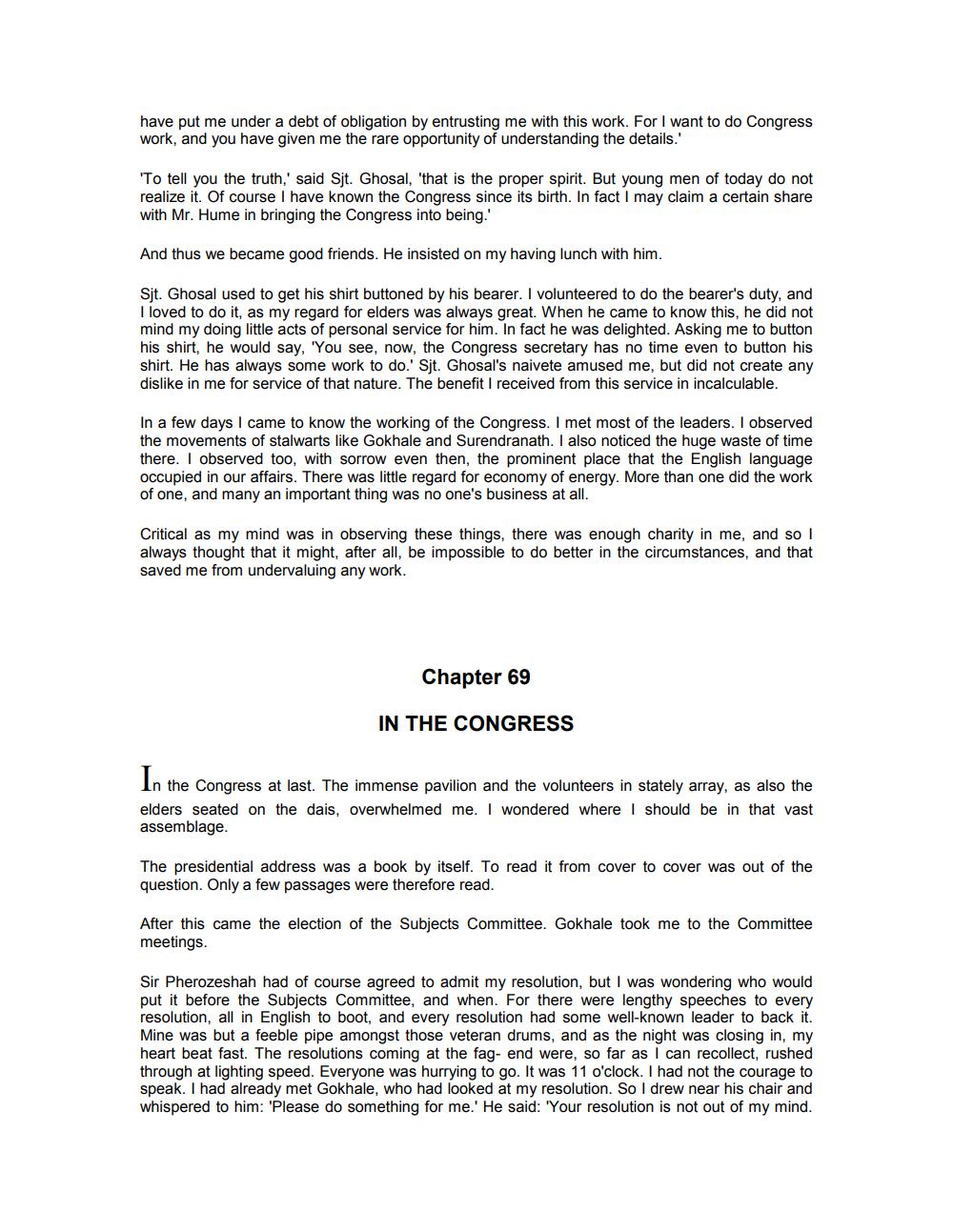________________
have put me under a debt of obligation by entrusting me with this work. For I want to do Congress work, and you have given me the rare opportunity of understanding the details.'
'To tell you the truth,' said Sjt. Ghosal, 'that is the proper spirit. But young men of today do not realize it. Of course I have known the Congress since its birth. In fact I may claim a certain share with Mr. Hume in bringing the Congress into being.'
And thus we became good friends. He insisted on my having lunch with him.
Sjt. Ghosal used to get his shirt buttoned by his bearer. I volunteered to do the bearer's duty, and I loved to do it, as my regard for elders was always great. When he came to know this, he did not mind my doing little acts of personal service for him. In fact he was delighted. Asking me to button his shirt, he would say, 'You see, now, the Congress secretary has no time even to button his shirt. He has always some work to do.' Sjt. Ghosal's naivete amused me, but did not create any dislike in me for service of that nature. The benefit I received from this service in incalculable.
In a few days I came to know the working of the Congress. I met most of the leaders. I observed the movements of stalwarts like Gokhale and Surendranath. I also noticed the huge waste of time there. I observed too, with sorrow even then, the prominent place that the English language occupied in our affairs. There was little regard for economy of energy. More than one did the work of one, and many an important thing was no one's business at all.
Critical as my mind was in observing these things, there was enough charity in me, and so I always thought that it might, after all, be impossible to do better in the circumstances, and that saved me from undervaluing any work.
Chapter 69
IN THE CONGRESS
In the Congress at last. The immense pavilion and the volunteers in stately array, as also the elders seated on the dais, overwhelmed me. I wondered where I should be in that vast assemblage.
The presidential address was a book by itself. To read it from cover to cover was out of the question. Only a few passages were therefore read.
After this came the election of the Subjects Committee. Gokhale took me to the Committee meetings.
Sir Pherozeshah had of course agreed to admit my resolution, but I was wondering who would put it before the Subjects Committee, and when. For there were lengthy speeches to every resolution, all in English to boot, and every resolution had some well-known leader to back it. Mine was but a feeble pipe amongst those veteran drums, and as the night was closing in, my heart beat fast. The resolutions coming at the fag- end were, so far as I can recollect, rushed through at lighting speed. Everyone was hurrying to go. It was 11 o'clock. I had not the courage to speak. I had already met Gokhale, who had looked at my resolution. So I drew near his chair and whispered to him: 'Please do something for me.' He said: 'Your resolution is not out of my mind.




